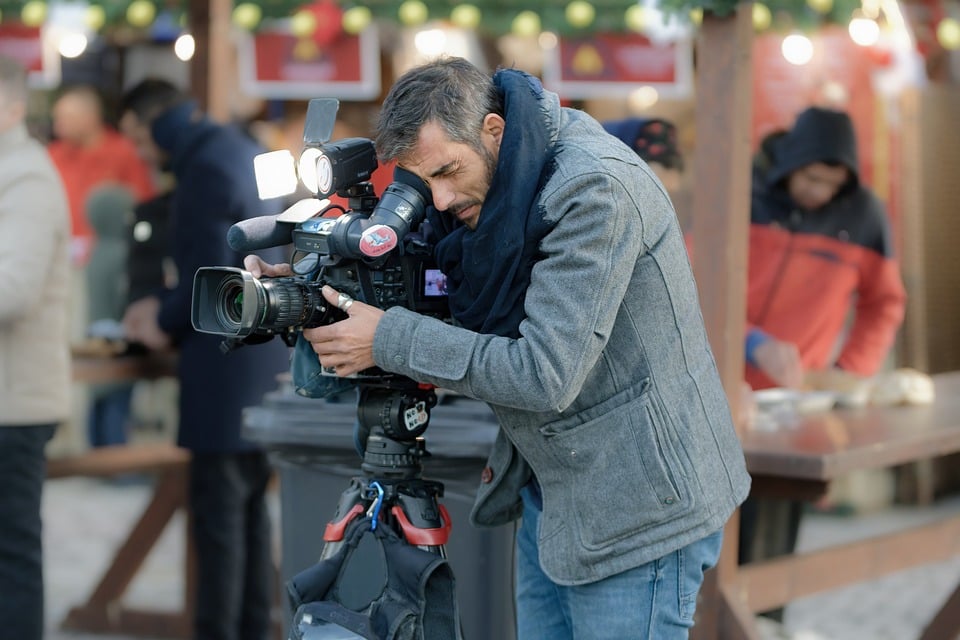The film industry has undergone monumental changes over the past few decades, but one of the most significant advancements has been the rise of female directors. Historically, cinema has been a male-dominated field, with women often sidelined, their narratives overlooked, and their talents unrecognized. However, the tide is turning. The contributions of female directors are increasingly acknowledged, celebrated, and supported, heralding a new era for storytelling in film. This article shines a spotlight on some of the most influential women directors who are shaping modern cinema.
Breaking Through the Glass Ceiling
The glass ceiling in filmmaking has been notoriously thick, but a growing number of women are making their mark in this realm. The 21st century has seen a notable shift, marked by a slew of awards, accolades, and recognition for female filmmakers. The Academy Awards saw its first female Best Director winner, Kathryn Bigelow, in 2010 for "The Hurt Locker." Since then, films directed by women have been nominated for and won significant accolades, highlighting the depth and diversity that female directors bring to the industry.
Celebrated Trailblazers
Ava DuVernay
Ava DuVernay is renowned for her compelling storytelling and groundbreaking work. Her film "Selma" (2014), which chronicles the civil rights movement and the march from Selma to Montgomery, showcased not only her directorial prowess but also her ability to shine a light on critical social issues. DuVernay’s Netflix miniseries "When They See Us" (2019) further cemented her reputation as a fearless storyteller, earning widespread acclaim for its unflinching portrayal of the Central Park Five case. As a vocal advocate for diversity in Hollywood, DuVernay continues to inspire a new generation of filmmakers.
Greta Gerwig
Greta Gerwig burst onto the scene with her directorial debut, "Lady Bird" (2017), which became a sleeper hit and garnered five Academy Award nominations. Her follow-up, "Little Women" (2019), is a fresh retelling of the classic novel that received critical acclaim and commercial success. Gerwig’s ability to blend humor, empathy, and a keen understanding of female experience has resonated with audiences, making her a standout voice in contemporary cinema. As she embarks on the highly anticipated "Barbie," she is set to further expand her influence in the industry.
Chloé Zhao
Chloé Zhao made history in 2021 when she won the Oscar for Best Director for "Nomadland," becoming the first woman of color and the second woman ever to receive the award. Her films often explore themes of community, resilience, and the human condition. Zhao’s signature style blends documentary realism with narrative filmmaking, providing a deeply poignant lens through which to view American life. Her work challenges traditional storytelling norms and invites audiences to reflect on the complexities of existence.
Phoebe Waller-Bridge
Phoebe Waller-Bridge is not only an accomplished actress but also a groundbreaking director and writer. Her hit series "Fleabag" showcases her talent for combining humor with raw emotion, offering a fresh perspective on the struggles of modern life. Waller-Bridge’s ability to tackle taboo subjects and her pursuit of authentic representations of women have resonated with audiences worldwide. Her work has redefined comedic storytelling in television and inspired numerous women to express their personal narratives.
The Importance of Representation
The increasing visibility of female directors is crucial not only for the industry but also for the audience. Women’s perspectives enrich storytelling and foster empathy, allowing diverse voices to be heard. Films directed by women often explore themes that resonate deeply with female audiences, addressing issues such as identity, sexuality, and societal expectations. With more women behind the camera, the film industry is beginning to reflect the diversity of the human experience.
Looking to the Future
As the film world continues to evolve, it is imperative to support and amplify women’s voices in all areas, from directing to producing and writing. Organizations such as Women in Film, The Geena Davis Institute on Gender in Media, and Reel Women are working tirelessly to promote gender equality in the industry. By investing in initiatives that support female filmmakers—such as mentorship programs, scholarships, and networking opportunities—we can pave the way for the next generation of directors.
Conclusion
Women in film are not just participants in the cinematic landscape; they are dynamic creators shaping the future of cinema. From Ava DuVernay’s powerful narratives to Greta Gerwig’s innovative storytelling and Chloé Zhao’s evocative imagery, female directors are enriching the film industry with their unique perspectives and talents. Celebrating these women and advocating for diverse voices is essential for fostering a more inclusive and innovative film community. As audiences, we must continue to support and uplift female directors, championing their work and recognizing their invaluable contributions to cinema. The future is bright, and women in film are leading the way.


